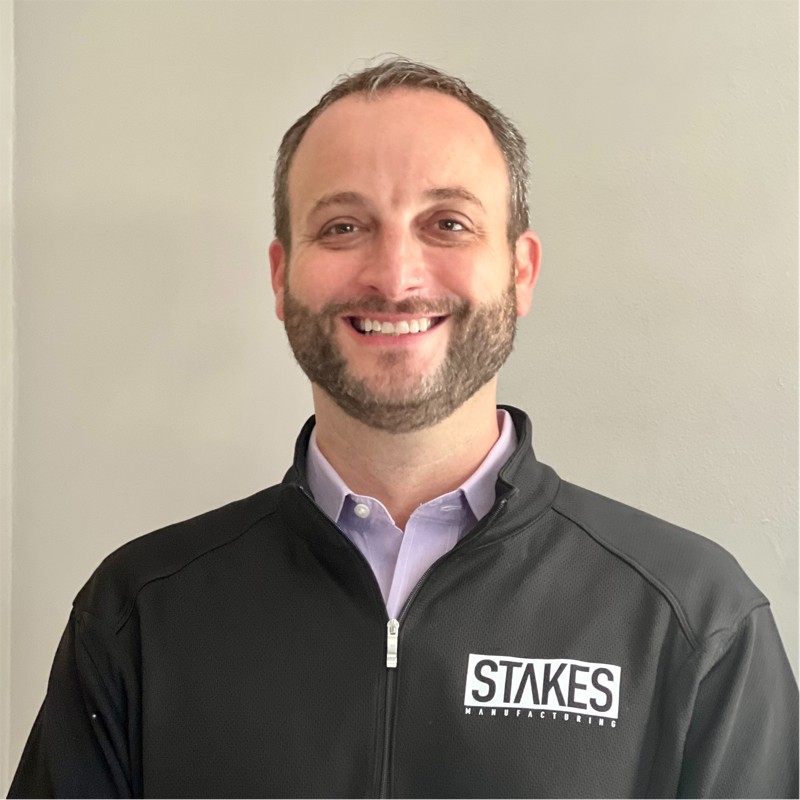Website traffic and inbound lead count for Newark, New Jersey-based Unionwear has been off the charts this month.
Mitch Cahn, president of the presidential campaign merchandise supplier, says the metrics are similar to the days when Unionwear is mentioned in the Wall Street Journal or USA Today. But instead of MAGA hats or Harris-Walz camo caps driving interest, it’s simply the company’s foundation of being made in America.
“We’re giving out a ton of quotes on huge numbers where buyers don’t have a compelling reason to buy domestically,” Cahn says. “We believe it’s a lot of research from people who want to hold out to see if there’s going to be any movement on the tariffs before they need to place orders.”
Indeed, suppliers specializing in “Made-in-USA” products are seeing greater demand since President Donald Trump has implemented various tariffs over the past few months.
RELATED: Sourcing Locally vs. Global Trade: What’s Promo’s Path Through Tariffs?
Many of these promo firms, including Unionwear, have told PPAI Media that enthusiasm for domestic sourcing has intensified following Trump’s “Liberation Day” announcement on April 2, when he unveiled a 10% baseline tariff on imports from all countries and an individualized reciprocal tariff above 10% for 60 some-odd trading partners of the United States.
- This individualized rate was paused for 90 days on April 10 (except for China).
- Even before Trump’s trade policy went into effect, nearly half (46%) of PPAI 100 suppliers and distributors planned to focus on domestic sourcing this year, according to PPAI Research.

Mitch Cahn
President, Unionwear
Cahn compares the current mad dash for American-made products to the onset of the pandemic, when buyers who couldn’t get PPE out of China were forced to buy domestically. Data also supports the comparison: April 2024 is the biggest month-over-month increase in distributor searches for “Made-in-U.S.” products since April 2020, according to PPAI’s technology partner SAGE.
- Meanwhile, searches for “Made-in-Canada” products saw a massive spike beginning in February after Trump announced tariffs on Canada and Mexico.
Although those buyers went right back to China as soon as it became more affordable, Cahn, like many “Made-in-USA” suppliers, is hoping the outcome is different this time.
“Our sales cycle is longer than five days so it’s hard to see the immediate impact in our bank account,” Cahn says, “but we do know that more quotes mean more distributors that are shocked at how close the pricing is when all expenses are taken into account.”
Business Boost
Year to date, sales are up over 70% for LBU, which specializes in domestic cut-and-sew manufacturing of promo products, compared to the same period last year, according to Jordan Scaduto, partner and executive vice president of the Paterson, New Jersey-based supplier.
“We’re hearing directly from distributors, many of whom for the first time, that their clients are specifically requesting USA-made products – not just because of lead times or quality concerns, but because they’re overwhelmed by the tariff uncertainty and the unpredictability of global sourcing right now,” Scaduto told PPAI Media. “Buying domestically gives them peace of mind. They know they can avoid surprising costs, customs delays and the shifting landscape of international trade.”
Meanwhile, Linden, New Jersey-based All American Writing Instruments, which manufactures all components of its product line domestically, has reported year-to-date sales increasing 25% over the same period last year. Furthermore, the number of unique distributors who have ordered from AAWI has doubled in that same timeframe.
“While I can’t be certain as to what percentage of this is due to our products being USA-made, I do feel it has a large impact,” Colleen Shea, vice president of sales at AAWI, told PPAI Media. “Many distributors reached out to us in anticipation of the tariffs. Even if they haven’t yet placed orders, they’ve already completed our new account process.”

Colleen Shea
VP of Sales, All American Writing Instruments
As early as The PPAI Expo 2025, Hauppauge, New York-based supplier Royal Apparel has been seeing a noticeable rise in interest for “Made-in-USA” products.
- Overall sales, order volumes and new customer registrations have all increased over the past few months, according to Glen Brumer, sales director at Royal Apparel.
“Several production programs that were initially set to go overseas have now been redirected to Royal Apparel,” Brumer told PPAI Media. “We’ve been fielding multiple inquiries each day, and those conversations are turning into real orders. Distributors are clearly responding to their clients’ growing interest in U.S.-based production. We’re also hearing that they appreciate the stability of our pricing, especially as import costs continue to rise amid increasing uncertainty.”
Although one of Gallery Leather Direct’s sales channels is up 50% year to date, President Jeff Plourde doesn’t think the growth is related to tariffs, adding that it’s too early to feel the true impact.
“However, we would like to see more promotional growth and the tariff situation could help spur that,” says Plourde, whose Trenton, Maine-based company makes journals and presentation binders.
RELATED: This 96-Year-Old Firm Didn’t Write Off American Manufacturing
Nearly 30% of Koozie Group’s portfolio consists of products that are made, assembled or printed in the United States. PPAI 100’s No. 9 supplier designates those items as “USA Proud.”
Since Trump’s second inauguration, searches on the Clearwater, Florida-based firm’s “USA Proud” web pages have skyrocketed over 700%, according to Trish Daly, vice president of sales operations at Koozie Group.
“This is a topic in every sales meeting,” Daly says. “We’re not only focusing on our ‘USA Proud’ items, but we’re also letting customers know we’re poised with strong inventory of imported items because we brought in additional stock anticipating tariff uncertainty.”
On April 7, Koozie Group informed customers that it will be holding pricing through the end of the year on all of its 600-plus “USA Proud” items. Additionally, the company has pledged to hold pricing on its remaining catalog at least through June 1.
- On April 16, private equity firm Mill Point Capital announced its acquisition of Koozie Group, which it’s merging with fellow Sunshine State hard goods leader Garyline, already a company in the Mill Point Capital portfolio.
“This commitment is our way of helping distributors navigate uncertainty and find solutions for their customers,” says Pierre Montaubin, CEO of Koozie Group. “Additionally, our consultative selling approach, backed by new data-driven tools, recent additions to the field, inside sales teams and improved services (free drop shipments, free spec samples, etc.), provides a winning combination when paired with the peace of mind created by our extensive offering of ‘USA Proud’ items.”
It hasn’t been all good news, though. Kate Nash, director of business development – promo sales at Raining Rose, PPAI 100’s No. 45 supplier, says the full-service manufacturer of personal care products has received a mixed response thus far.
“Some customers have increased business with us because we are a USA-based manufacturer, but others have also been experiencing delays or cancellations in their order volume because of fear or frustration with the market,” Nash says.
More Manpower
To meet this rising demand, several “Made-in-USA” suppliers have already made or are in the process of operational adjustments.
Ian Brudenell, national sales manager at All American Writing Instruments, says the firm has increased capacity and streamlined its order and production process. “As a USA manufacturer, I’m not sure if there has ever been a better time to increase traction and generate new business more than now,” Brudenell says.
Scaduto says LBU has also expanded its production capacity, fine-tuned its workflow and added staff where needed.

Jordan Scaduto
Partner/EVP, LBU
“We’re also continuing to invest in equipment and product development so we can scale efficiently while keeping lead times fast and quality high,” Scaduto says. “One of the biggest advantages we offer as a fully vertical manufacturer is agility so when the market shifts like it has now, we’re built to respond quickly.”
Currently running its plant with only one shift, Leather Gallery Direct has capacity to grow, according to Plourde. “We could scale up quickly if we need to,” he says. “Labor seems to be available in our market, so we have options of expanding the team and increasing capacity on the current shift or adding additional shifts.”
- As global brands like Apple, Hyundai and Eli Lilly pledge to invest in American manufacturing, Trump’s “Made-in-USA” push is seeing early success.
- The U.S. gained 8,000 manufacturing jobs in February and 1,000 in March after losing an average of 9,000 manufacturing jobs per month last year, according to the U.S. Bureau of Labor Statistics.
“Raining Rose has been investing in customer service technology and staffing for several months,” Nash says. “Our sourcing teams have been doing what they can to stockpile raw ingredients and components ahead of expected cost increases. We’re as prepared as we can be.”
Just last week, Los Angeles-based apparel supplier BELLA+CANVAS and Eastlake, Ohio-based supplier Stakes Manufacturing, which specializes in print on demand, announced a strategic partnership to support companies in reshaping their supply chains.
“We’re leveraging BELLA+CANVAS’ domestic and near-shore garment production capabilities to empower major global brands to manufacture white label garments in the U.S. and have them decorated domestically to meet the rising demand driven by recent tariff changes,” says Jed Seifert, co-founder of Stakes.

Jed Seifert
Co-founder, Stakes Manufacturing
Additionally, Stakes offers an extensive selection of BELLA+CANVAS off-the-shelf garments, including SKUs produced through a blend of domestic and near-shore manufacturing, as well as fully “Made-in-USA” options. Seifert says this provides brands that may not require a custom-made garment solution with access to high-quality apparel and premium retail quality printing domestically.
“This partnership enables brands to reshore their supply chains while elevating product quality, sustainability and speed to both customers and retailers,” Seifert says.
Promising Outlook
Despite Trump’s penchant for frequently changing tariff decisions, several “Made-in-USA” suppliers are anticipating the 47th president’s trade policy to be a boon for business for the foreseeable future.
“We’d guess there would be a further increase in sales because people know what they are going to get with Sock Club,” says Holly Richardson, brand manager at the Austin, Texas-based supplier.
“In the past, they might have been hesitant to work with a new vendor or one with higher prices, but now that prices are increasing on imported products, as well as the unpredictability of those supply chains, it creates an opportunity for customers to try Sock Club and the value we create for them and their customers.”

Holly Richardson
Brand Manager, Sock Club
Richardson says the firm has always been committed to educating distributors about its American-made socks, which are entirely knit in North Carolina. Through customer data, phone calls and conversations at tradeshows, the team has experienced greater interest in where its products are made.
“More local production equals shorter shipping times, quality we totally control and natural positive attributes like fewer carbon emissions,” Richardson says. “We’re grateful that we have the opportunity to continue to showcase our transparency about the sourcing of our materials, our family-owned manufacturing process in North Carolina and the attention to detail and quality that we put into every pair.”
Another optimist, Mary Dobsch, president of Washington, Missouri-based supplier The Chest, anticipates an increase in sales this year. Her company specializes in puzzles and custom packaging, including corrugated tuck boxes traditionally made in the U.S.
“We make every product per order and have always been flexible in our labor market to accommodate demand,” Dobsch says. “There is a very healthy inventory on all our raw materials and our suppliers can provide materials very quickly. It certainly helps for all being available domestically.”
Many distributors are having to navigate difficult situations in which they priced projects based on pre-tariff costs and are now facing potential losses or having to renegotiate, Brumer says, adding that Royal Apparel has received multiple reports that the total landed cost of some imported goods now exceeds what the firm charges for U.S.-made products.
“That’s leading companies to reconsider their offshore orders and come to us instead,” Brumer says. “We’ve made sure to stay ahead of the curve. Our inventory levels are at historic highs, and we’ve ramped up raw material procurement to meet anticipated demand.”

Kate Nash
Director of Business Development, Promo Sales, Raining Rose
Similarly, Nash hopes Raining Rose is able to help customers save projects this year that might otherwise be lost. “As an industry, we still need to partner together to convince customers that even with the economic uncertainty, promotional products are a non-negotiable part of their marketing mix,” Nash says.
Of course, American manufacturers are poised to capitalize on the global trade war.
“Every time international supply chains get disrupted, interest in USA-made spikes,” Scaduto says. “But this time, the shift feels more sustained. Customers are realizing that ‘Made in USA’ isn’t just about patriotism – it’s a smart business strategy.”


